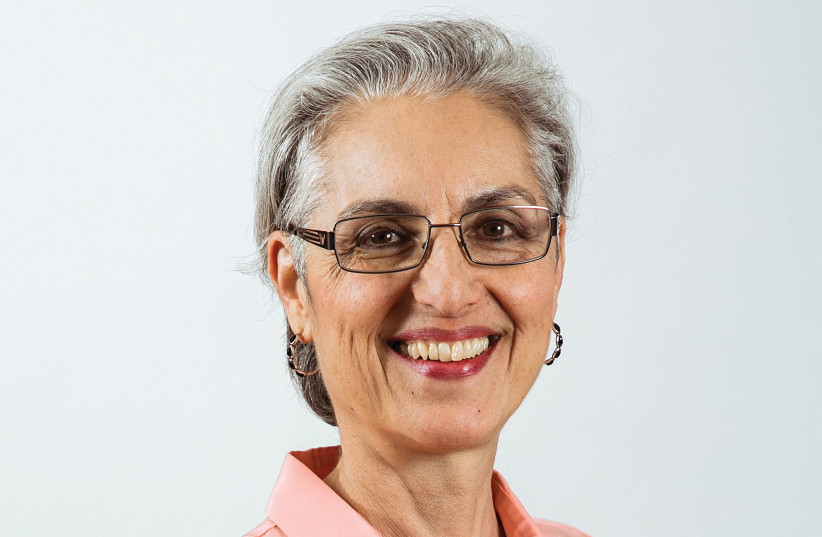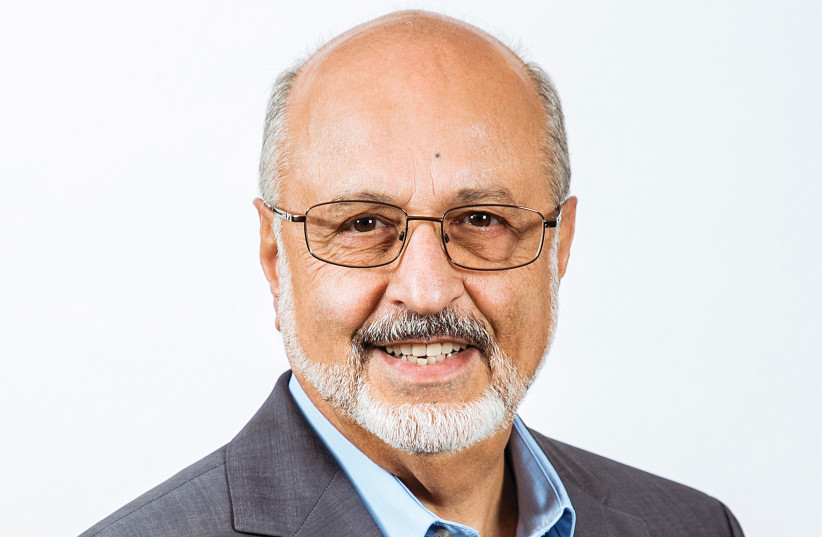“Results driven philanthropy is what leads to excellence, sustainability, and real social impact,” Nicole Hod Stroh, executive director of the Merage Foundation Israel recently told The Jerusalem Post.

The Merage Foundation, a private family foundation, was established by businessman and venture philanthropists David and Laura Merage from Denver, Colorado. In 1977, David Merage and his brother, Paul, founded Chef America, Inc. best known for developing the household staple, Hot Pockets. In 2002, they sold the company to Nestle and today David runs the Consolidated Investment Group (CIG), a Denver based company strategically investing in real estate, capital markets, and private equity.

“The Merage Foundation Israel operates under the visionary leadership of David and Laura Merage,” Hod Stroh said. “They provide the funding, but their tenacity and vision and creativity is embedded in everything we do in Israel.”
As such, the Foundation operates six core projects across a variety of areas in Israel.
David and Laura, both natives of Tehran, Iran immigrated to the United States in their teens. They began their philanthropic activity in Israel by giving back to the Jewish-Iranian community, helping families who wanted to make Aliyah.
Today, the Foundation operates a framework for Iranian women with eight branches across the country, where volunteer-run chapters grant hundreds of women the opportunity to ignite change and shape the future of the Iranian community in Israel.
“This project embodies the DNA of the Merage Foundation,” Hod Stroh said. “We want to find ways to empower individuals who can then contribute to change in their communities and give back to Israeli society.”
Similarly, in 2005, in partnership with the Jewish Agency the Foundation established Wings, an initiative to provide young, new immigrants a holistic framework to integrate into Israeli society. From preparation for enlistment to career guidance, emotional support, and financial coaching, Wings accompanies over 3,500 young immigrants from over 50 countries every year.
According to Hod Stroh, one of the Foundation’s strengths is its “convening power to bring people around the table – which really becomes a big lever for change.”
It is through this approach that the Foundation launched “Pakal”, a groundbreaking community building model, creating a special bond and a renewed sense of purpose among thousands of reservists. In the same way, the “Connected to Life” program, bridges the digital gap and reduces loneliness among seniors by matching them with young volunteers. In only three years, the program has touched the lives of more than 3,000 seniors and 2,000 young volunteers.
This lever also serves as the backbone for the Foundation’s flagship programs in the Negev.
For nearly two decades the Foundation supported a wide range of initiatives from bike trails in Yerucham, to a medical center in Dimona, a rehabilitation center in Sderot to entrepreneurship programs and urban renewal programs.
“Today, our focus is on regional economic development with the understanding that we need to create clusters and communities for the Negev that have a unique global value proposition,” she said. “In other words, how can the Negev compete with the rest of the world and how can we create a full, thriving ecosystem in the desert - a critical need for Israel’s society.”
To that end, DeserTech promotes the development, adaptation and commercialization of technologies that enable sustainable living in the desert while simultaneously, turning Be’er Sheva and the Negev region into a global entrepreneurial hub for these technologies.
DeserTech was established two years ago by the Foundation together with the Israel Innovation Institute, Israel’s Ministry of Environmental Protection, and the Ben Gurion University of the Negev.
“It is exciting to be building a new sector, framing what Desert Tech is, and translating what is being developed in the Negev into economic value to be used by cities and companies from around the world looking for solutions,” Hod Stroh said.
Additionally, the Foundation has focused its efforts on positioning the Negev as an international destination for wine, food, and agritourism.
“We understand that the wine tourism is growing around the world, the pandemic accelerated that as people want to be outdoors, have a nice glass of wine and we have something that doesn’t really exist around the world - that is people growing wine in the middle of the desert,” she said.
As such, in 2020 the Foundation established the Negev Wine Consortium, comprised of 30 wineries under the brand of “Negev: Desert Wine”. The initiative also seeks to trademark the region and create a unique desert wine route in the Negev.
“Something very powerful is happening now in the Negev, it is an opportunity that people shouldn’t miss,” she said.
